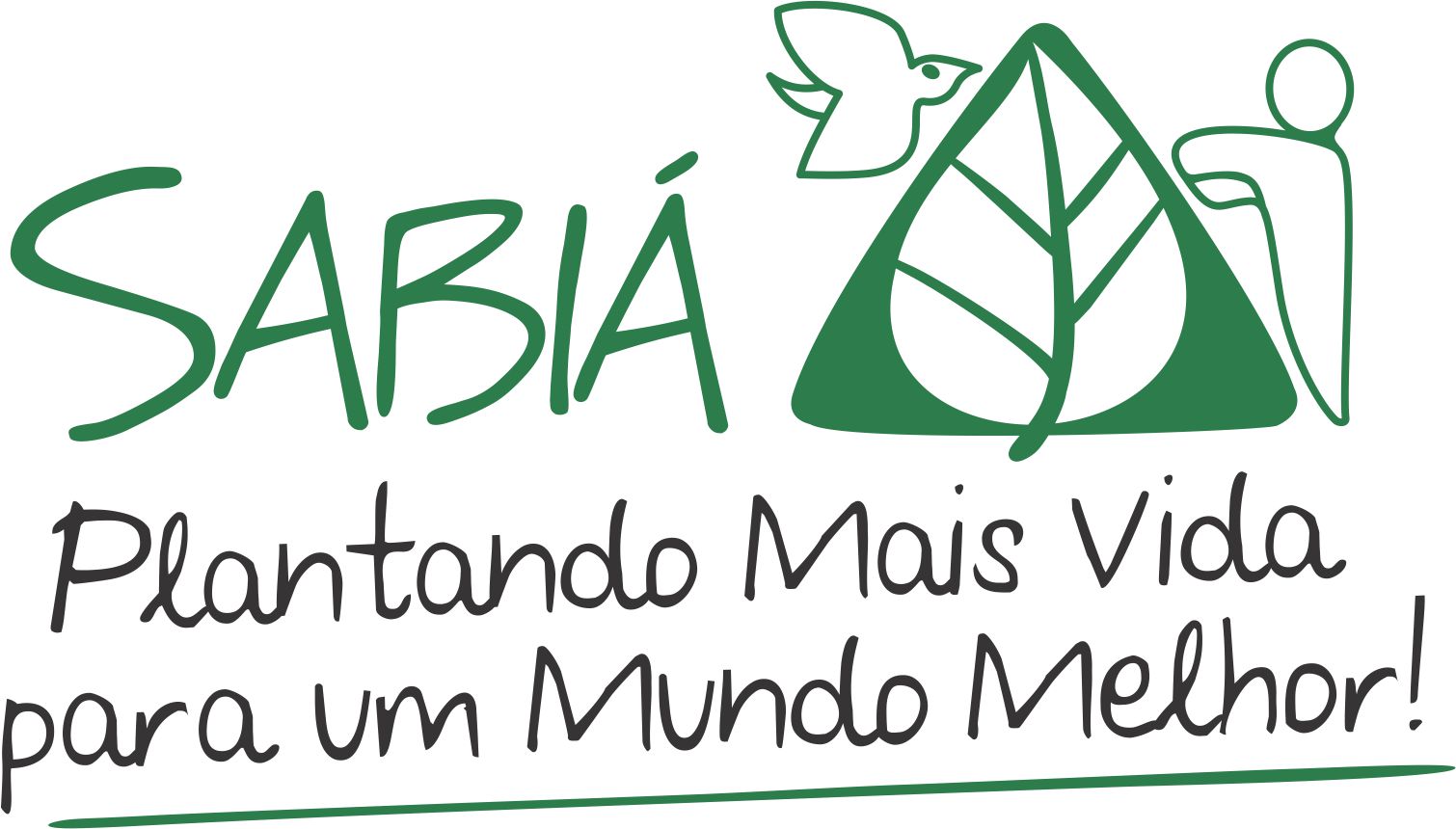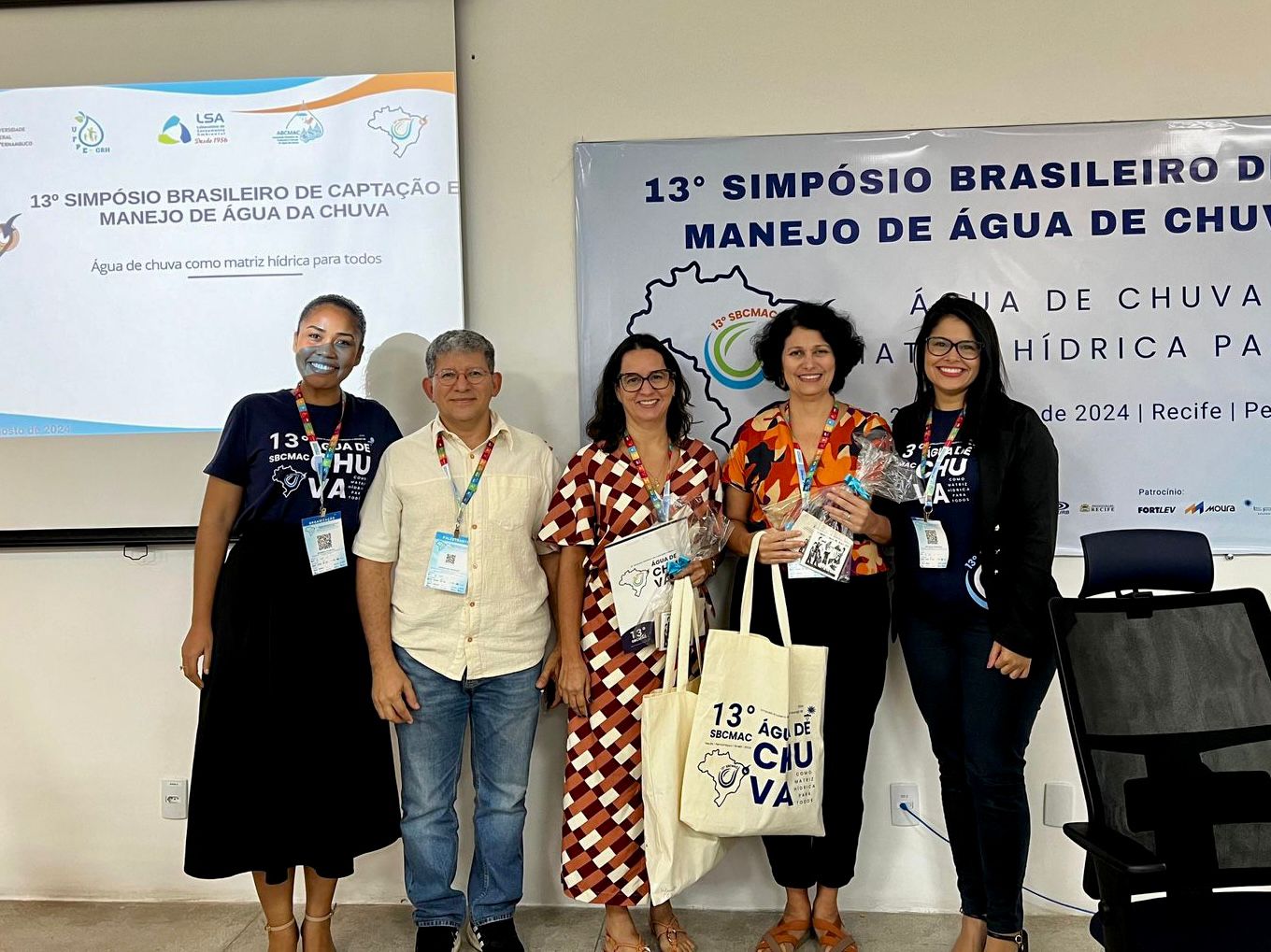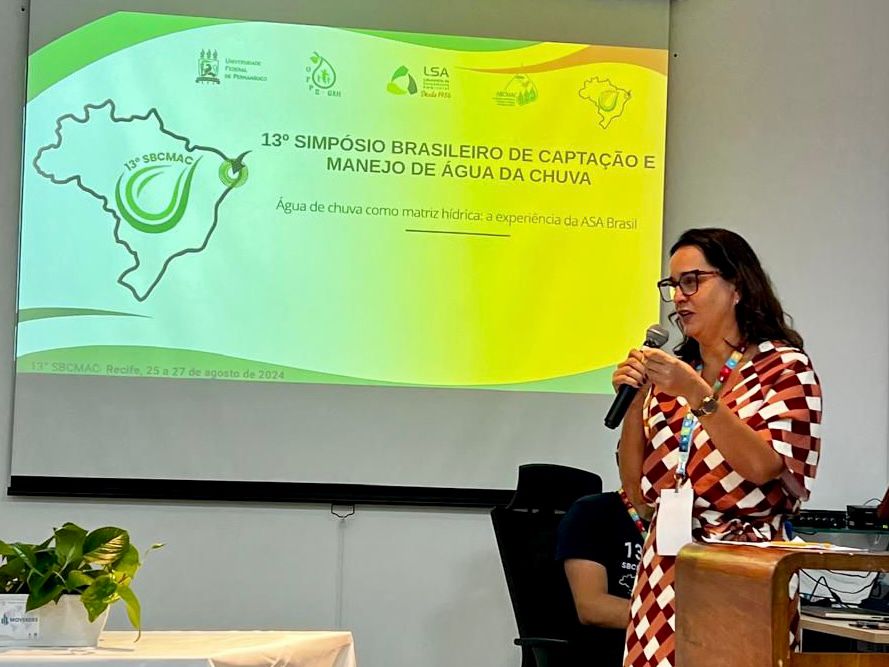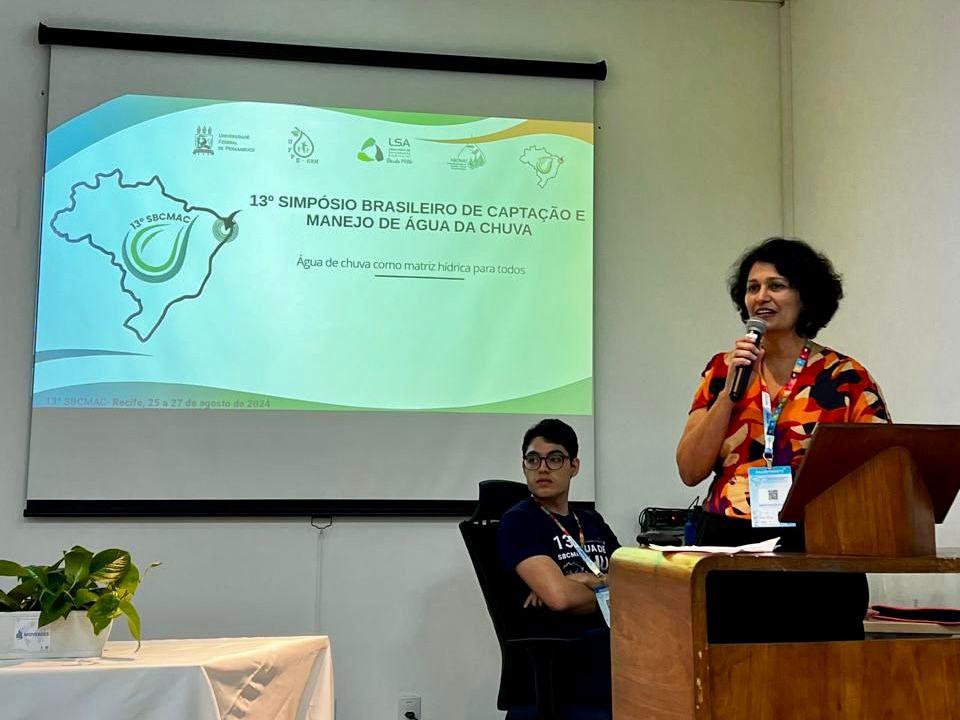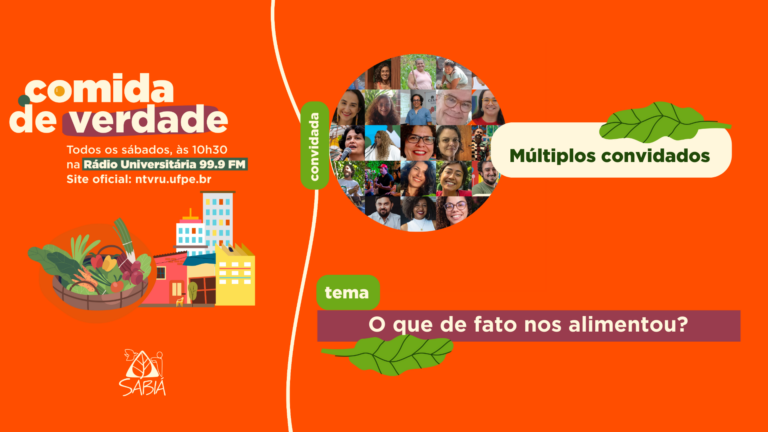Articulação do Semiárido Brasileiro at the 13th Brazilian Symposium on Rainwater Harvesting and Management
By Darliton Silva and Thamires Lima
On Monday afternoon, 26, civil society organizations that are part of Articulação Semiárido Pernambucano (ASA), attended the 13th Brazilian Symposium on Rainwater Harvesting and Management [SBCMAC], which takes place from August 25 to 27, at the Recife Campus of the Federal University of Pernambuco [UFPE].
The meeting seeks to promote dialog around the theme “Tomorrow is today: Rainwater as a water matrix for all”. Subjects such as social technologies, water resource management, environmental education and others are also being addressed.
“For us at the Articulation of the Brazilian Semi-Arid, we highlight the importance of the Symposium as an important space for dialoguing with researchers, students and academics about the experiences of living in the Semi-Arid,” says Waneska Bonfim, political-pedagogical coordinator of Diaconia, executive coordinator of ASA Pernambuco and representative of ASA Brazil at the event.
Maria Cristina Aureliano, general coordinator of Centro Sabiá, was also present and stressed the importance of bringing the practical experiences of civil organizations with social technologies for collecting rainwater to spaces like this, giving visibility to the changes they bring about in the lives of farming families and the need to ensure that everyone has access to this right.
The aim of the Symposium is to reach out to rainwater beneficiaries, farmers, political representatives, researchers from governmental and non-governmental bodies, in order to broaden the debate and stimulate scientific advances in the use of rainwater and its management in rural areas.
The Brazilian Rainwater Harvesting and Management Symposium is an initiative of the Brazilian Rainwater Harvesting and Management Association, which was founded on July 8, 1999, in Petrolina-PE. This is a non-profit organization whose mission is to promote actions aimed at the rational and efficient use of rainwater in Brazil.
Nothing found.

